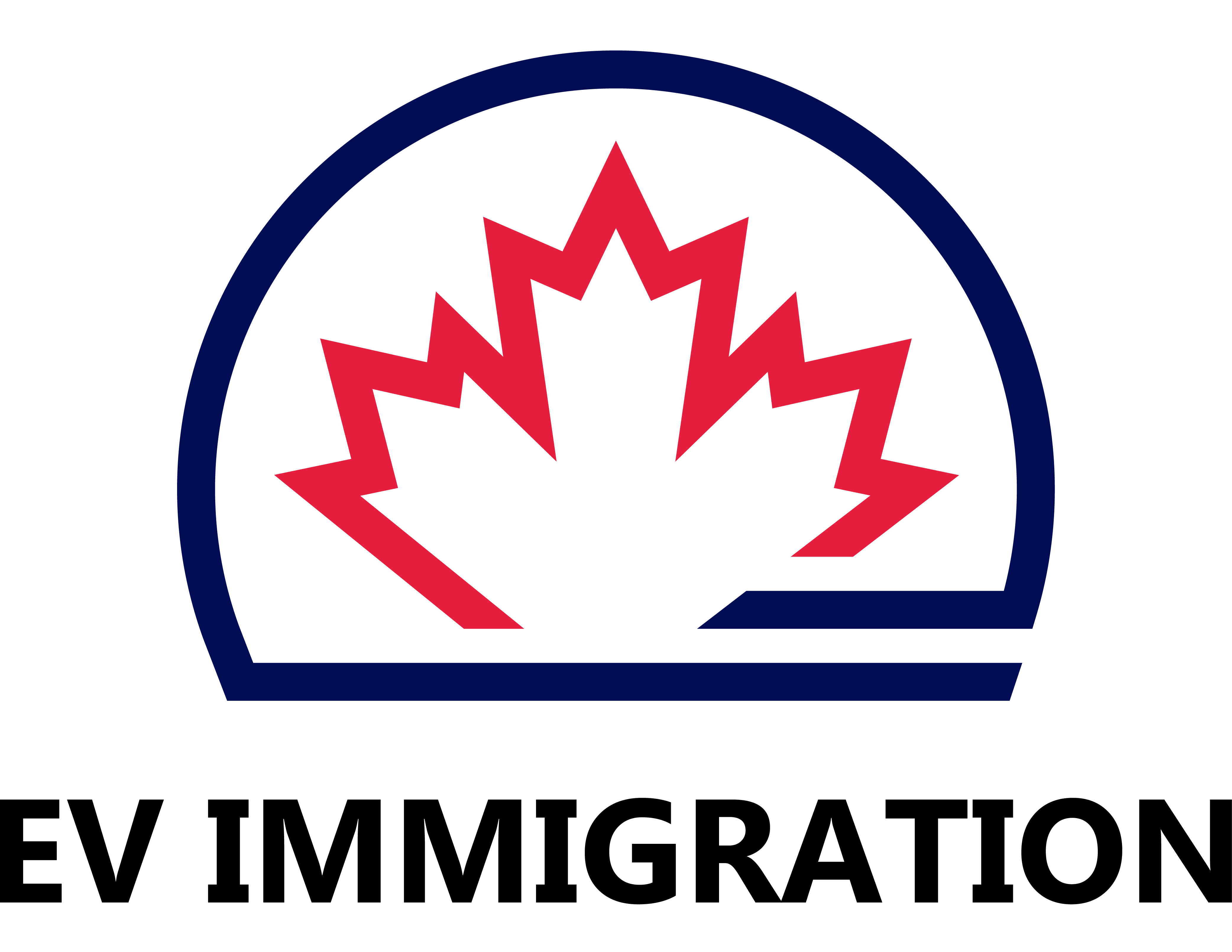The Immigration, Refugees and Citizenship Canada (IRCC) recently unveiled significant alterations to the eligibility criteria for Post-Graduation Work Permits (PGWP), marking a notable shift in Canada’s approach to managing its international student population.
These changes, announced on January 22nd, represent a strategic response to the challenges posed by the increasing influx of international students into the country and aim to foster a more sustainable and balanced immigration system.
What are the Reasons Behind IRCC’s Adjustments to PGWP?
One of the primary motivations behind IRCC’s adjustments to PGWP eligibility criteria is to tackle concerns related to overcrowding and resource constraints within Canadian educational institutions.
The exponential increase in international student enrollments, particularly in major urban centers, has strained infrastructure and resources, leading to challenges in providing quality education and support services.
By regulating the intake of international students through revised eligibility criteria, IRCC aims to alleviate these pressures and ensure that educational institutions can adequately accommodate and support their diverse student populations.
Moreover, Canada aims to keep the quality and integrity of education in Canada. This is also to solidify Canada’s position as a global leader in higher education.
The influx of international students, while beneficial economically, has raised questions about the quality of education and student experience.
IRCC’s adjustments to PGWP eligibility criteria seek to uphold their academic standards by ensuring that only students who meet certain criteria.
This measure not only safeguards the reputation of Canadian educational institutions but also enhances the overall educational experience for both domestic and international students.
Understanding the Post-Graduation Work Permit (PGWP)
Before delving into the recent changes to the eligibility criteria for Post-Graduation Work Permits (PGWPs) announced by the Immigration, Refugees and Citizenship Canada (IRCC), it’s crucial to comprehend the significance of the PGWP and its role in the Canadian immigration landscape.
What is a PGWP?
The PGWP serves as an invaluable opportunity for international graduates of Canadian educational institutions to gain professional work experience in Canada after completing their studies. It is an open work permit, which means that holders can work for any Canadian employer without needing a job offer.
The permit’s validity typically spans up to three years, depending on the duration of the individual’s study program in Canada.
The significance of PGWPs extends beyond immediate employment opportunities. They serve as a vital pathway to permanent residency in Canada for international graduates.
Recent statistics from November 2023, provided by IRCC, highlight the substantial increase in international student graduates transitioning to permanent residency.
In 2023 alone, around 62,000 international student graduates successfully obtained permanent residency, marking a significant surge compared to previous years.
The PGWP plays a pivotal role in facilitating the integration of international talent into the Canadian workforce and society. It serves as a stepping stone towards permanent residency for many international graduates, contributing to Canada’s socio-economic landscape.
Understanding the importance of the PGWP provides context for the recent changes to its eligibility criteria by IRCC, which aim to strike a balance between managing the influx of international students and enhancing pathways to permanent residency.
How to Qualify for a PGWP?
To be eligible for a Post-Graduation Work Permit (PGWP), applicants must have completed studies in an academic, vocational, or professional training program that spans a minimum of eight months at an approved Designated Learning Institution (DLI).
Additionally, the program must have culminated in the attainment of a degree, diploma, or certificate.
Applicants must also have maintained full-time student status in Canada throughout each academic session of their program and include documentation verifying this status as part of their PGWP application. This also includes transcripts and an official letter from the DLI confirming program completion.
Furthermore, eligibility extends to graduates from various educational institutions, including public post-secondary institutions, private post-secondary schools in Quebec, and private secondary or post-secondary schools in Quebec offering qualifying programs of 900 hours or longer leading to diplomas or attestations.
Canadian private schools authorized to award degrees under provincial law may qualify if the student was enrolled in a degree program authorized by the province.
Changes in the Eligibility for Post-Graduation Work Permits
Effective September 2024, a pivotal change comes into effect, rendering international students enrolled in study programs facilitated by curriculum licensing agreements ineligible for PGWPs upon graduation.
Under this arrangement, students attending private colleges operating under such agreements will no longer qualify for the work permit.
The rationale behind this amendment lies in the need to align PGWP regulations with evolving educational dynamics. Curriculum licensing agreements, while facilitating access to education, often lack the rigorous oversight characteristic of public institutions.
This loophole in the system has prompted IRCC to take decisive action to maintain the integrity of the PGWP program.
There’s also been a rise in the instances of institutions overcommitting admission offers which resulted in rescinded letters of acceptance (LOAs).
Notably, in October 2023, Northern College in Ontario revoked admission offers from 500 students due to constraints in housing and job availability for international students.
This highlights the urgency of implementing measures to ensure a sustainable environment for international students.
Extended Work Permit for Short Graduate Programs
In addition to tightening eligibility, IRCC has introduced a positive reform benefiting graduates of master’s and other short graduate-level programs.
Starting soon, these graduates will be eligible to apply for a three-year work permit, irrespective of the program’s duration.
Previously, the duration of a PGWP was contingent upon the length of the study program, posing limitations for graduates of shorter-term programs.
This alteration acknowledges the value of diverse educational pathways and grants master’s students an extended opportunity to gain valuable Canadian work experience, thereby enhancing their prospects for permanent residency.
IRCC’s announcement of revised eligibility criteria for Post-Graduation Work Permits reflects a strategic approach to manage the influx of international students while enhancing pathways to permanent residency.
By tightening regulations and extending work permit durations, Canada seeks to strike a balance between attracting global talent and ensuring sustainability within its educational and employment frameworks.
These changes not only safeguard the integrity of the PGWP program but also foster a conducive environment for international students to thrive and contribute to Canada’s socio-economic landscape.
Navigating Changes to PGWP Eligibility Criteria with EV Immigration Canada
Navigating the changes to Post-Graduation Work Permit (PGWP) eligibility criteria introduced by the Immigration, Refugees, and Citizenship Canada (IRCC) can be daunting, especially for international students.
EV Immigration, a trusted consultancy firm based in Canada, plays a pivotal role in assisting students, including those from the Philippines, in understanding and navigating these intricacies.
Here’s how EV Immigration can provide invaluable support throughout this journey:
Licensed and Regulated Consultancy
EV Immigration stands out as a licensed consultancy firm with representation from a Regulated Canadian Immigration Consultant (RCIC), Ma. Eden Rabor. This accreditation ensures adherence to the highest standards of professionalism and ethics.
Filipino immigrants can rest assured knowing they are in the hands of a licensed professional who is an active and good-standing member of the College of Immigration and Citizenship Canada (CICC).
Ma. Eden Rabor’s extensive experience further enhances the credibility of EV Immigration, ensuring that Filipino immigrants receive guidance from someone deeply acquainted with the nuances of the Canadian immigration system.
Tailored Services for International Students
Understanding the unique needs and challenges faced by international students, including those affected by the recent changes to PGWP eligibility, is central to EV Immigration’s approach. The consultancy is committed to providing personalized advice and support that resonates with the specific needs and aspirations of Filipino immigrants.
EV Immigration’s services cover a wide spectrum of Canadian immigration programs, ensuring that Filipino immigrants have access to tailored assistance across different visa categories.
International Partnerships
EV Immigration’s strategic partnerships with well-respected companies in the Philippines further amplify its ability to provide effective support. Collaborations with entities like Enhance Visa and Atheneum English Advancement and Review Center strengthen the firm’s capacity to serve Philippine-based applicants seamlessly.
These partnerships contribute valuable insights and support in navigating the complexities of Canadian immigration processes.
Commitment to Ongoing Professional Development
The commitment to ongoing professional development, coupled with Ma. Eden Rabor’s active membership in the CICC, underscores EV Immigration’s dedication to staying abreast of the latest immigration regulations and practices.
This commitment ensures that Filipino immigrants receive advice and support aligned with the current standards of the Canadian immigration system.
Holistic Support Services
Beyond providing consultation services, EV Immigration adopts a holistic approach to support immigrants at every stage of their journey. From understanding the revised PGWP eligibility criteria to successful settlement in Canada, the consultancy stands as a reliable ally for Filipino immigrants.
Whether it’s completing application forms, compiling required documentation, or navigating the application process, EV Immigration offers comprehensive support services tailored to the needs of Filipino immigrants.
To explore more about the recent changes in Canadian Immigration and how EV Immigration can assist you, schedule online appointments with EV Immigration today. The process is streamlined through our initial assessment form or contact us directly at +1 905 662 6688.


